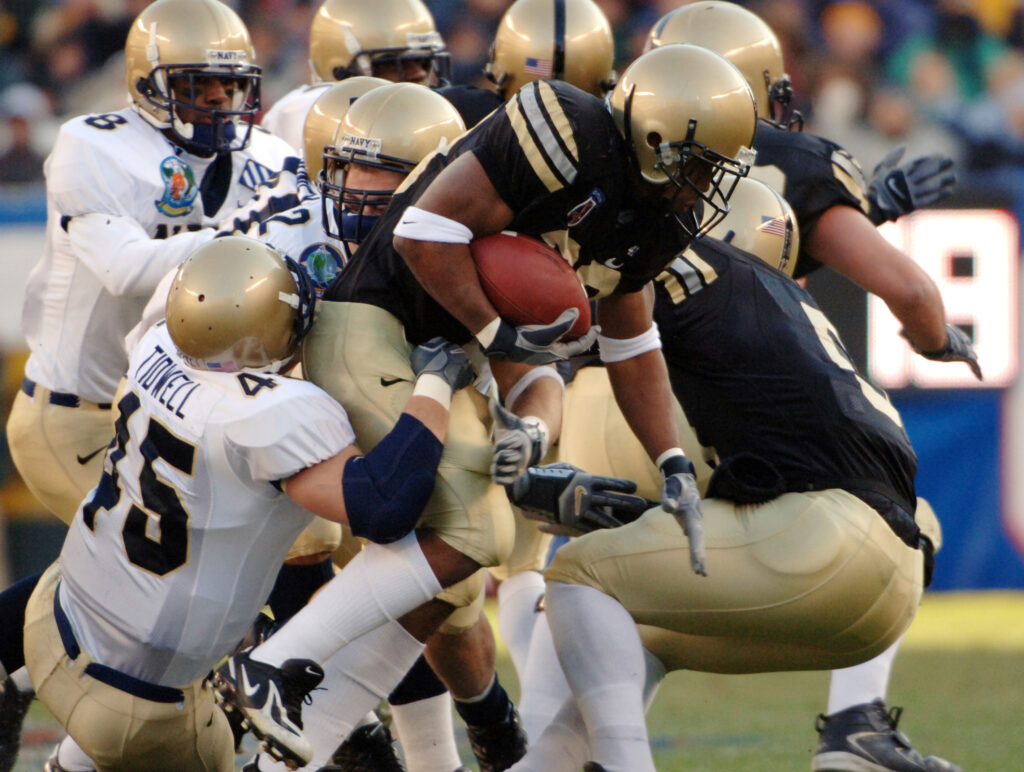A Michigan state lawmaker is proposing a bill to legalize betting on fantasy football games, prompting the state’s top gambling regulator to throw a penalty flag toward those playing fantasy football for money in the state.
The key issue is whether the activity is defined as games of skill or of chance.
Responding to Senate Bill 459, proposed by state Sen. Curtis Hertel Jr. (D-Meridian Township), Michigan Gaming Control Board (MGCB) Executive Director Rick Kalm told Gambling Compliance placing money on the outcome of fantasy sports events is illegal under the state’s laws regulating games of chance.
Daily fantasy sports services are an altered version of traditional fantasy sports, where players compete online by selecting professional athletes for their fictional team and comparing real-world performance statistics over an agreed-upon period of time. Teams with the best results often win prizes or cash.
‘Fairly Grey Area’
Hertel, who says he plays fantasy sports, says the state’s gambling laws need to be updated to deal with the rise of fantasy football and other games.
“I’m a fantasy player, and just like millions of other Michiganders, I had my drafts in the last couple weeks,” Hertel said. “Michigan law, in what we believe is a fairly grey area of the law because almost no other states have rules regarding fantasy … particularly the one-day leagues, but all of us run our leagues through a website of some sort.”
Hertel says fantasy football is a knowledge-based game and should be legalized as a game of skill.
“What we’re trying to do is define fantasy as a game of skill, not of chance,” Hertel said. “Knowledge is important to it [and] research is helpful in winning, so it’s not like a slot machine or roulette, where you can’t get an edge against the house.”
Calling Encroachment
Government shouldn’t be involved in the local fantasy football league’s affairs, Hertel says.
“Imagine if, halfway through the season, we were told we couldn’t play anymore. What would we do?” Hertel said. “No one that I know of … is gambling their house away by playing fantasy sports. It’s a relatively small amount of money that people are paying to play a game that they enjoy and that they invest a lot of time [and] energy [in]. To me, it seems silly for the state to be involved.”
No Threat to Sports’ Integrity
Christine Hurt, a professor of law at Brigham Young University’s J. Reuben Clark Law School, says it’s important for regulators to differentiate between skill-based and chance-based games.
“States allow fantasy sports gambling under the argument that it’s a game of skill, not of chance,” Hurt said. “You have to strategize, you have to play people and bench people throughout the season. But daily fantasy sports are settled in a particular day, so whatever baseball or football games there are on that day, that’s what you make choices about.”
Hurt says fantasy sports betting is not the same as sports betting.
“One of the reasons the United States has always regulated or prohibited sports gambling is that we believe it threatens the integrity of the sport,” Hurt said. “The theory about fantasy sports gambling is that there’s no way you could possibly influence the outcome of that many games over the course of the season, so we don’t have to worry about fantasy sports betting that much because it doesn’t threaten the integrity of the underlying sport.”
Elizabeth BeShears ([email protected]) writes from Trussville, Alabama.




